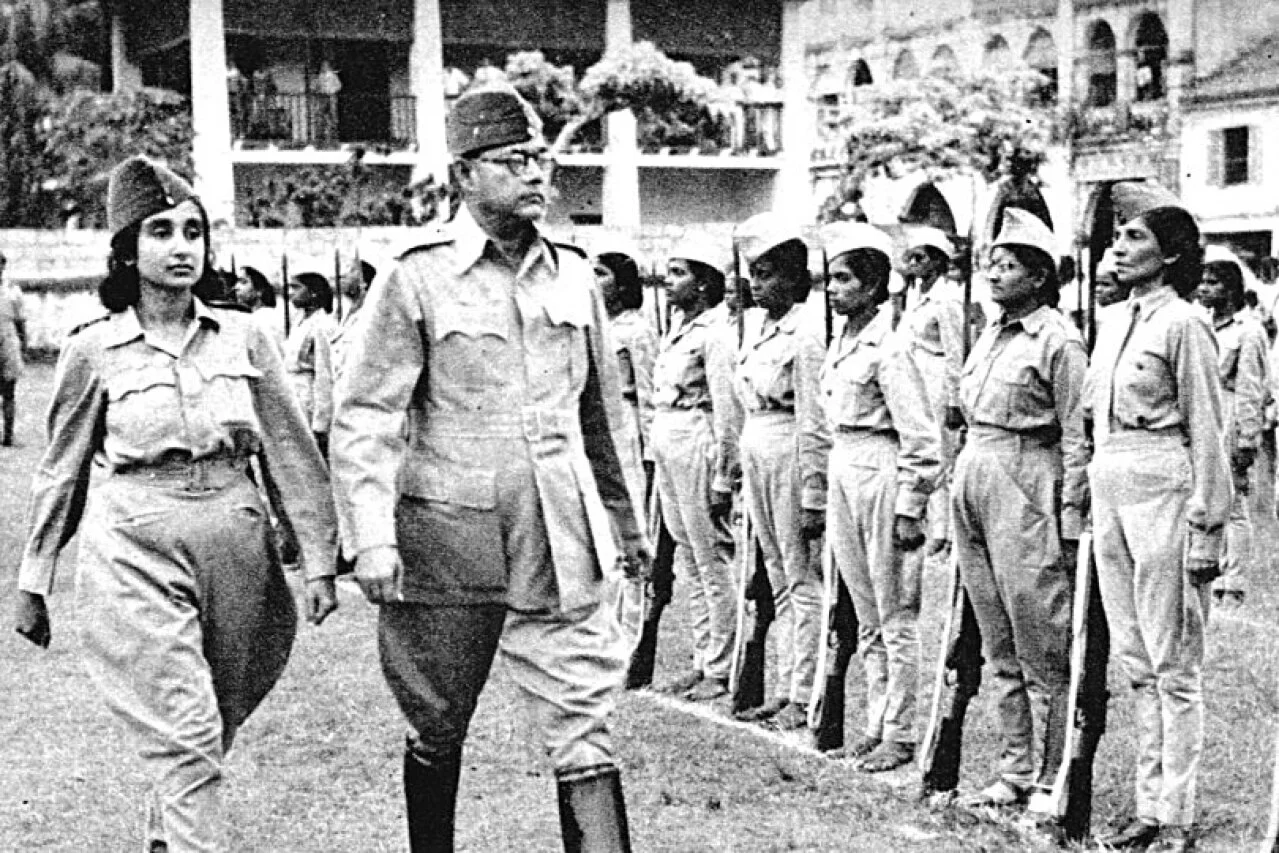Incoming: Sex, Drugs, and Copenhagen. Jennifer Corley, Justin Hudnall, Francisco Martínezcuello, and Tenley Lozano (Eds). San Diego, CA: So Say We All Press, 2019.
Sex, Drugs, and Copenhagen is the latest iteration of the Incoming print and public radio series. Drawing on the work of So Say We All’s Veterans’ Writers Division, the book presents an eclectic collection of stories from veterans, their families, and the surrounding U.S. military community. Consequently, it seems only fitting the volume begins with a dedication to a member of that close-knit circle. A former serviceman, Gary Anderson, participated in writing groups throughout his life as a means of sharing and processing his experiences. Pondering the value of storytelling, his niece Kelly Patterson explains, “[Gary’s] writing gave him a vehicle to express joy, to honor the loves of his life…to show fondness, appreciation and gratitude to his friends and to share things that made him laugh or made him curious.”[1] She goes on to note that it equally provided him “with a place to air his frustrations, vent righteous anger and work through his difficulties.”[2] This is the second such anthology of stories to join the Incoming series and provides a similarly expansive opportunity for its own contributors to reflect on the impact of a life in uniform.
The book is part of a long American tradition of military memoirs and war literature that extends as far back as the War of Independence and can be traced through the nineteenth century to the Civil War.[3] During the first half of the twentieth century, veterans of the First and Second World Wars generated vast numbers of fictional and non-fictional accounts. In keeping with the realism of well-known nineteenth century authors such as Stephan Crane in The Red Badge of Courage, this generation of authors revealed the brutality and sometimes comic surrealism of modern combat in greater detail than ever before.[4] Moreover, their words have become synonymous with contemporary understandings of conflict, from John Dos Passos’ Three Soldiers to Joseph Heller’s Catch 22. American involvement in Vietnam cast a long shadow over the remainder of the century and irreversibly shaped public conceptions about what it meant to be a veteran and the challenges of returning home in the wake of an unpopular war.[5] Since the creation of the all-volunteer force in 1973, several additional generations of American servicemen and women have deployed abroad to places as far flung as Bosnia, Afghanistan, and Iraq. Each in their turn has continued to shift and shape our collective consciousness of the military experience.
In keeping with this tradition, Sex, Drugs and Copenhagen reflects on combat, an experience that many feel lies at the heart of war. In the opening chapter of the book, contributor Colin D. Halloran vividly and unflinchingly compares the intimacy of killing, to the intimacy of sex. He observes that the:
…images are sharper, you can feel—sense—every bead of sweat…When a drop falls, from a forehead or a breast, and lands on your arm, you feel it shatter, feel it spread its saline shrapnel across every micrometer of your skin. It’s only when it’s over that you realize just how little or how much time has passed, a simultaneous moment and eternity.[6]
Expanding on this theme, Iraq and Afghanistan veteran Dan Lopez describes the hardship and unexpected joy of front line service in, “Smoking Weed with the Taliban.” Retelling his story to one of the book’s editors, Justin Hudnall, Lopez explains that while “Iraq was a bitter, bitter beast for me…I loved my job. I was a squad leader, infantry squad leader dude, how much more could you ask for?”[7] For others though, war is simply about making it through another day. In “Survival,” Dennis Williams focuses on one such harrowing encounter with a member of the Viet Cong, who he discovers is just as reluctant to kill as Williams himself. Ruminating on the life-altering moment, he concludes that “most warriors are not natural killers, but are forced to do so by war.”[8]
While the physical act of fighting remains pivotal for many veterans, it represents only one part of military life. The book deftly draws the reader’s attention beyond the field of battle to life on deployment, with all its associated boredom and absurdity. For example, in “Hurry Up and Wait,” Brooke King remembers the uneasy tension that accompanied troops as they waited to take part in the invasion of Iraq during the First Gulf War.[9] In “Pass the Hot Sauce,” Susanne Aspley evocatively describes her time in Bosnia, recalling that “on deployments, I missed something I never knew could be missed…I missed color…the warmth of red, the calmness of blue, the luxury of purple.”[10] Striking a lighter note, Joshua Callaway entertainingly muses on his efforts to break up the tedium of guard duties in Afghanistan by buying a pet monkey and getting far more than he initially bargained for.[11]
The book expertly weaves in stories that reflect the wide diversity of service life, including events that take place far from a theater of combat but prove no less traumatic or transformative for the authors. This includes Allison Gill’s “Rape Jokes.” One of the first women accepted to the U.S. Navy’s nuclear program in the early 1990s, Gill offers a harrowing account of being raped at a barracks party and the poor response she received from both the armed forces and law enforcement. Equally important and compelling, she describes how she coped over the subsequent years and eventually returned to her roots as a trained musician as a way of healing.[12]
The book strives to incorporate the stories of military families. Often absent from other accounts, this collection rightly recognizes the lasting impact a life in uniform has on both service personnel and the extended network of supporters surrounding them. In “New Traditions,” Delia Knight contemplates the superstitious rituals she adopted to keep her brother safe on deployment, from sitting in the same row at church to taking the same route to work each morning. What is more, she considers the depth of love required to help that same brother move forward on his return home.[13] In “Archaeology,” Wendy Hill offers readers a striking portrayal of what it’s like for the spouse left behind in the aftermath of a death. A deeply personal account, she describes the pain of losing a partner while struggling to help her young children connect with a father they were too small to remember.[14]
Sex, Drugs and Copenhagen is part of a growing body of literature written by and for veterans in the wake of the wars in Iraq and Afghanistan that portrays the joy, despair, boredom, and trauma of military life.[15] The book acknowledges both the ugliness and the beauty of the experience. Since the Vietnam War, popular culture in the United States and other Western countries has overwhelmingly depicted the veteran as a broken, scarred figure. Television shows and movies often portray ex-service personnel teetering on the edge as victims of politically contentious deployments.[16] This book does not shy away from that experience.[17] However, it asks readers to see the writers as multidimensional human beings with agency and a diversity of experience. It also brings together multiple generations of veterans and their families from Vietnam to Bosnia, Iraq and Afghanistan.
War Art (Scott Olson/Getty)
In Brandon Lingie’s story “Graffiti,” the Afghanistan veteran describes the stencils and art that adorned the walls of the American-led Kandahar airfield and the wing of Leipzig-Halle’s airport reserved for returning American forces. Depicting the latter, he recounts in detail everything from the unit decals and logos to the names of fallen friends. As he poignantly recalls:
The lives of thousands of young people, in limbo, are condensed on these walls. Their words ambushed me. Mostly, these are walls of bravado. The wall writers’ friends could see them unguarded if they wrote honest. But how does one get more honest than a name and a date to prove your existence?[18]
All human beings are storytellers, and as writers we seek to leave behind a piece of that story for whomever may wish to pick it up. Sex, Drugs and Copenhagen is an important reminder of the therapeutic and communal power of storytelling and its continued centrality to understanding the modern war experience.
Meghan Fitzpatrick received her Ph.D. in War Studies from King’s College London. She is a Strategic Analyst and an Adjunct Professor for the Royal Military College of Canada. Her peer reviewed works can be found in such distinguished journals as War & Society. She has written extensively about operational stress injuries and psychological resilience.
Have a response or an idea for your own article? Follow the logo below, and you too can contribute to The Bridge:
Enjoy what you just read? Please help spread the word to new readers by sharing it on social media.
Header Image: Smoking in Afghanistan (Kabul, City in the Wind)
Notes:
[1] Kelly Patterson, “Dedication to Gary Armstrong,” in Jennifer Corley, Justin Hudnall, Francisco Martínezcuello and Tenley Lozano, Eds. Incoming: Sex, Drugs and Copenhagen (US: So Say We All Press, 2019), ix.
[2] Ibid.
[3] Yuval Noah Harari, “Military Memoirs: A Historical Overview of the Genre from the Middle Ages to the Late Modern Era,” War in History 14.3 (2007), pp. 297-298.
[4] David Lundberg, “The American Literature of War: The Civil War, World War I, and World War II,” American Quarterly 36.3 (1984), pp. 376-287.
[5] Frank Usbeck, “Writing Yourself Home: U.S. Veterans, Creative Writing and Social Activism,” European Journal of American Studies 13.2 (2018), p. 2.
[6] Colin D. Halloran, “Tracers,” in Sex, Drugs and Copenhagen (2019), p. 1.
[7] Dan Lopez to Justin Hudnall, “Smoking Weed with the Taliban,” in Sex, Drugs and Copenhagen (2019), p. 97.
[8] Dennis Williams, “Survival,” in Sex, Drugs and Copenhagen (2019), p. 219.
[9] Brooke King, “Hurry Up and Wait,” in Sex, Drugs and Copenhagen (2019), pp. 81-82.
[10] Susanne Aspley, “Pass the Hot Sauce,” in Sex, Drugs and Copenhagen (2019), pp. 18.
[11] Joshua Callaway, “Monkey Business,” in Sex, Drugs and Copenhagen (2019), pp. 6-15.
[12] Allison Gill, “Rape Jokes,” in Sex, Drugs and Copenhagen (2019), pp. 177-181.
[13] Delia Knight, “New Traditions,” in Sex, Drugs and Copenhagen (2019), pp. 89-94.
[14] Wendy Hill, “Archaeology,” in Sex, Drugs and Copenhagen (2019), pp. 232-241.
[15] Examples include: Andrew Carroll, ed. Operation Homecoming: Iraq, Afghanistan, and the Home Front, in the Words of U.S. Troops and Their Families. Updated Edition (Chicago: U of Chicago P, 2006); “UC Student Veterans Writing Workshop.” Interdisciplinary Humanities Center UC Santa Barbara. Accessed 19 December 2019. Web; Veterans Writing Project. “Veterans Writing Project.” Accessed 8 December 2019. Web.
[16] Meghan Fitzpatrick, “Veterans, Victims and the ‘Culture of Trauma.’” Kings of War/Center for Company Leaders West Point Blog (2 March 2015).
[17] Brandon Lingie, “Graffit,” in Sex, Drugs and Copenhagen (2019), p. 50.
[18] Brandon Lingie, “Graffit,” in Sex, Drugs and Copenhagen (2019), p. 50.






















